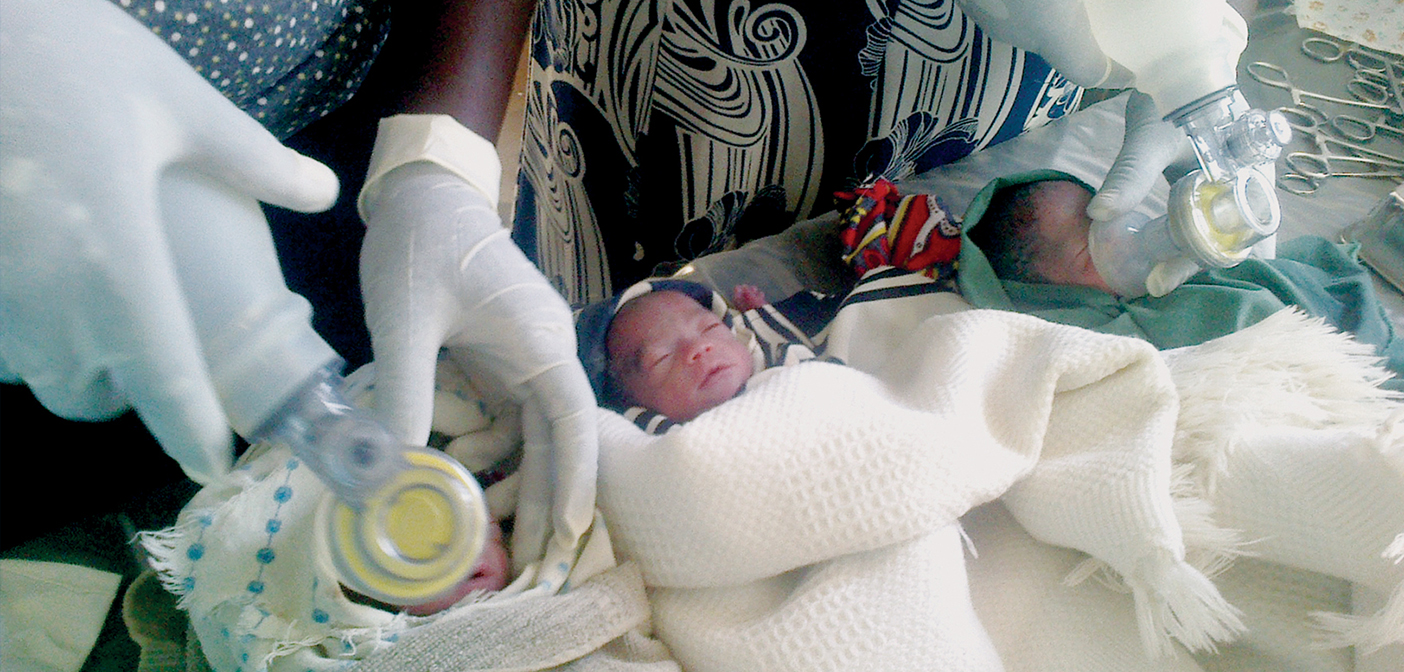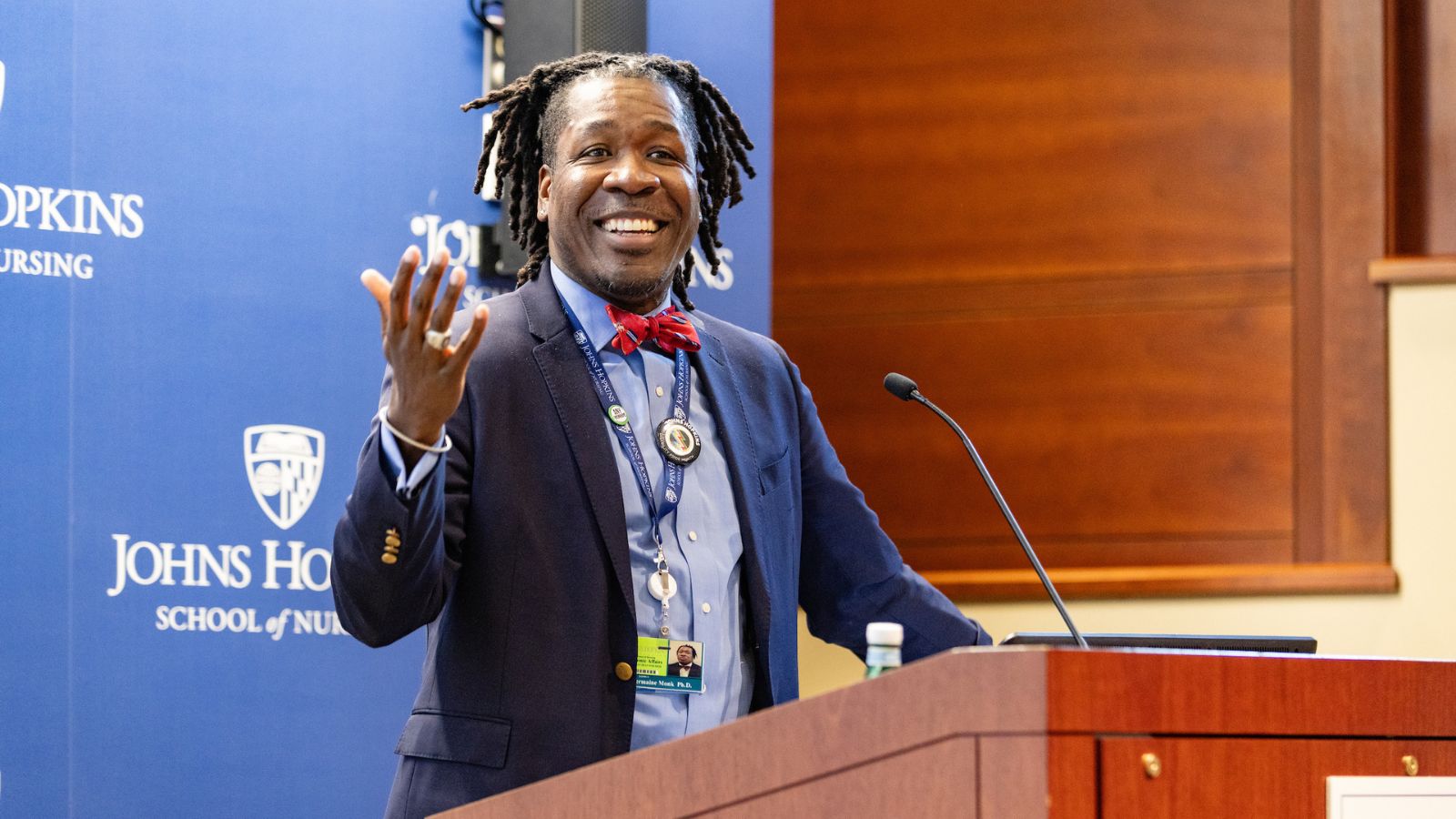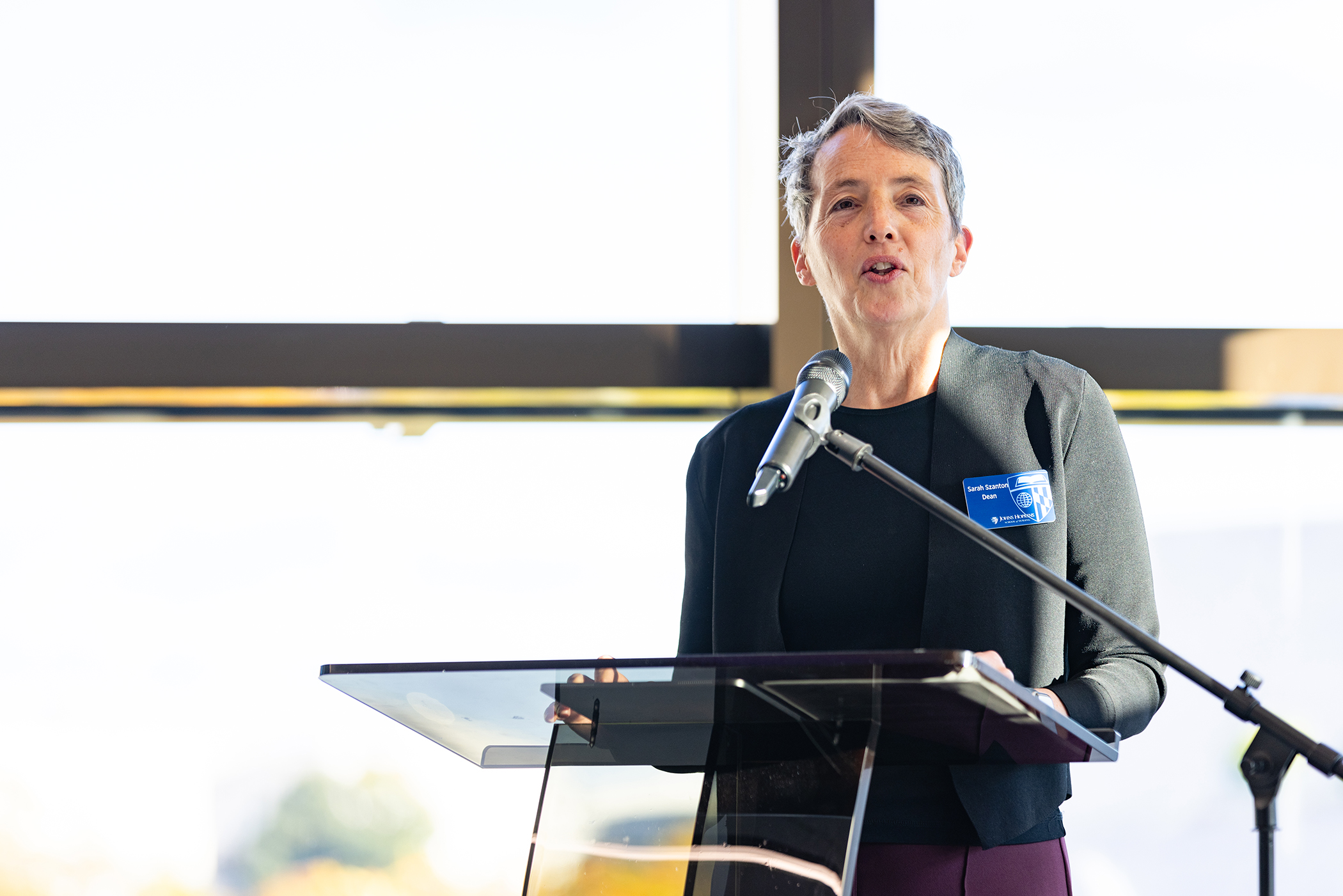By Innocent Atukunda and Alisha Horowitz
Nurse-midwife Christine Apio and her nurse assistant, Doreen Aguti, would be put to the test when they delivered unexpected triplets—none of them was breathing. Such a scenario would be daunting enough in the best-equipped health facilities, but even more so in their small health clinic in Eastern Uganda.
When Susan Nabwire—who had no idea that triplets were about to double the size of her family—arrived at the clinic already in labor, nearly two months before her due date, Apio and Aguti rushed to assist her.
The nurses were well-prepared because of the training they had received on newborn resuscitation and prevention and management of postpartum hemorrhage through Jhpiego’s efforts in the multi-partner Saving Lives at Birth initiative. During the training, the women had practiced on lifelike simulation models.
Nabwire gave birth to the first baby. Apio handed her to Aguti for resuscitation, then realized a second baby was on the way and got ready for that delivery. “There are more coming!” Apio shouted as she scrambled for additional supplies.
The baby arrived 15 minutes later, in need of immediate help from a manual bag-and-mask resuscitator. Luckily, the clinic had received two correctly sized resuscitators through the training program. “For sure, if we did not have the two [resuscitator] bags, these babies would be history now,” Apio said.
As they delivered the third baby, Apio and Aguti continued to work well as a team, despite the pressure. “I had no idea [how to resuscitate newborns] before [the training], and I saw today that I can manage so well. Practice helped me to improve my skills,” Aguti explained.
With the three babies safe because of the skilled care they received, the tired mother and her newborns were taken to a hospital to receive more intensive care.
Preparation, training, and having the right equipment available at the right time ensure that nurses and other frontline health workers can meet any challenge. Jhpiego has provided expert training for more than 600 nurses in their health facilities across Uganda, ensuring that mothers and babies receive the absolute best care, whether the birth is routine, complicated, or surprising.
Photo courtesy of Jhpiego
“For sure, if we do not have the two [resuscitator] bags, these babies would be history now,” says Uganda nurse-midwife Christine Apio.

 Forging Policy: How Can Doulas Improve Black Maternal Health?
Forging Policy: How Can Doulas Improve Black Maternal Health? Forging Policy: Associate Dean Jermaine Monk and Education After Affirmative Action
Forging Policy: Associate Dean Jermaine Monk and Education After Affirmative Action Most People Want to Breastfeed, But Need More Support To Do So
Most People Want to Breastfeed, But Need More Support To Do So Awards for Diversity
Awards for Diversity From the Dean: Here & Now
From the Dean: Here & Now






